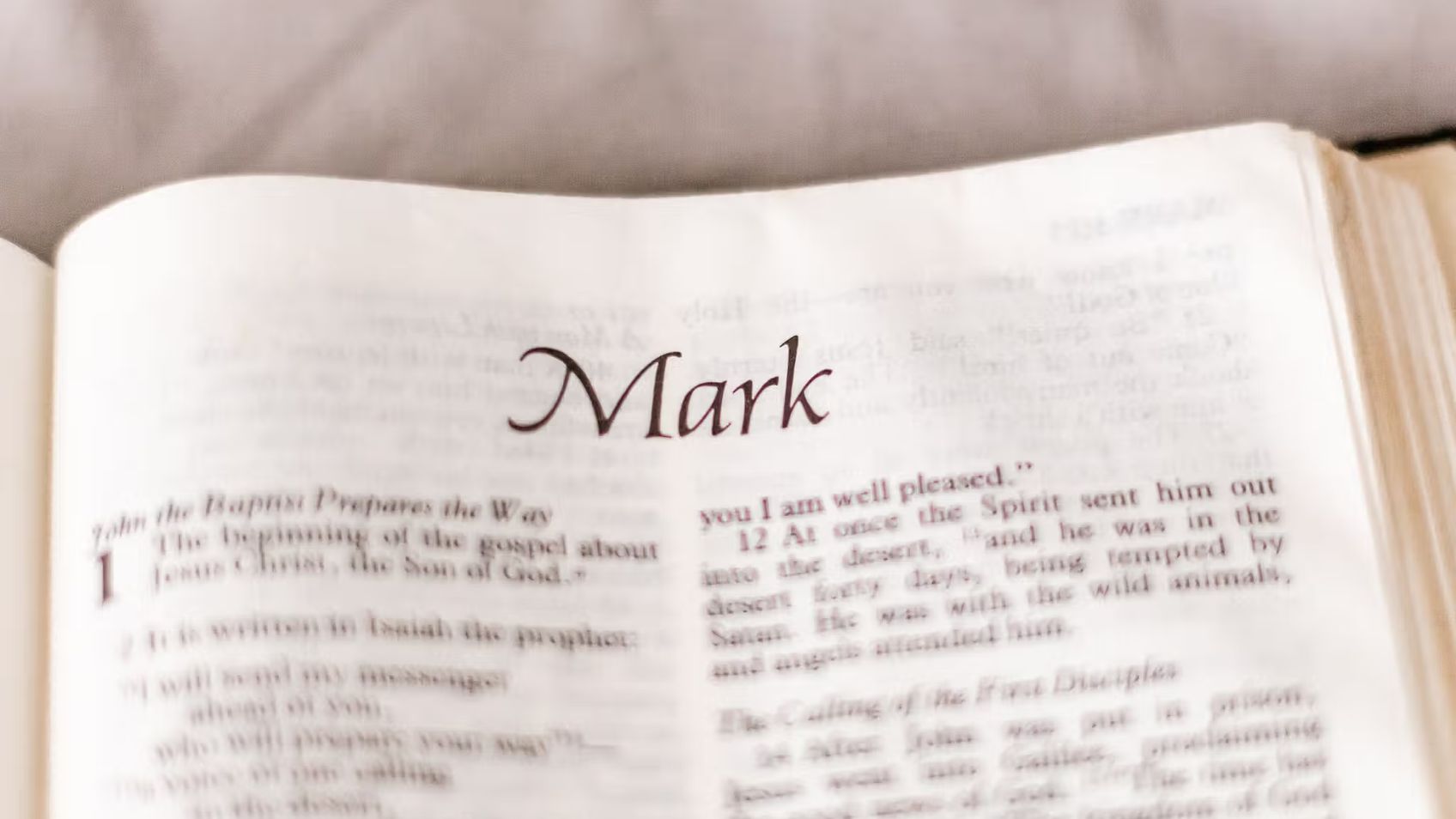Mark 16

Gospel of MarkSteve Gregg
Steve Gregg discusses the controversial ending of the Gospel of Mark and the challenges of harmonizing the resurrection accounts in the four Gospels. He examines the evidence for and against the authenticity of verses 9-20 in Mark 16, including the writings of early church fathers. The relationship between baptism and salvation, the manifestation of spiritual gifts, and the need for faith and witness in overcoming doubt and skepticism are also explored.
More from Gospel of Mark
29 of 30

Mark 15:33 - 15:47
Gospel of Mark
In this discussion of Mark 15:33-47, Steve Gregg explores the significance of Jesus' crucifixion and death. He notes that the event was the centrality
Series by Steve Gregg

God's Sovereignty and Man's Salvation
Steve Gregg explores the theological concepts of God's sovereignty and man's salvation, discussing topics such as unconditional election, limited aton

2 Kings
In this 12-part series, Steve Gregg provides a thorough verse-by-verse analysis of the biblical book 2 Kings, exploring themes of repentance, reform,

Esther
In this two-part series, Steve Gregg teaches through the book of Esther, discussing its historical significance and the story of Queen Esther's braver

Proverbs
In this 34-part series, Steve Gregg offers in-depth analysis and insightful discussion of biblical book Proverbs, covering topics such as wisdom, spee

2 John
This is a single-part Bible study on the book of 2 John by Steve Gregg. In it, he examines the authorship and themes of the letter, emphasizing the im

Malachi
Steve Gregg's in-depth exploration of the book of Malachi provides insight into why the Israelites were not prospering, discusses God's election, and

Strategies for Unity
"Strategies for Unity" is a 4-part series discussing the importance of Christian unity, overcoming division, promoting positive relationships, and pri

Lamentations
Unveiling the profound grief and consequences of Jerusalem's destruction, Steve Gregg examines the book of Lamentations in a two-part series, delving

2 Timothy
In this insightful series on 2 Timothy, Steve Gregg explores the importance of self-control, faith, and sound doctrine in the Christian life, urging b

Philippians
In this 2-part series, Steve Gregg explores the book of Philippians, encouraging listeners to find true righteousness in Christ rather than relying on
More on OpenTheo

Could the Writers of Scripture Have Been Influenced by Their Fallen Nature?
#STRask
October 23, 2025
Questions about whether or not it’s reasonable to worry that some of our current doctrines were influenced by the fallen nature of the apostles, and h

Is It Possible There’s a Being That’s Greater Than God?
#STRask
February 5, 2026
Questions about whether it’s possible there’s a being that’s greater than God and that’s outside of God’s comprehension and omniscience, and how to ex

Why Is It Necessary to Believe Jesus Is God?
#STRask
February 19, 2026
Questions about why it’s necessary to believe Jesus is God, whether belief in the Trinity is required for salvation, and why one has to believe in the

What Are Some Good Ways to Start a Conversation About God with Family Members?
#STRask
October 30, 2025
Questions about how to start a conversation about God with non-Christian family members, how to keep from becoming emotional when discussing faith iss

Why Would Any Rational Person Have to Use Any Religious Book?
#STRask
December 8, 2025
Questions about why any rational person would have to use any religious book, whether apologetics would be redundant if there were actually a good, un

Does God Really Need a “Pound of Flesh” to Forgive Sins?
#STRask
January 12, 2026
Questions about how to answer the challenge that God doesn’t need a “pound of flesh” to forgive sins but can simply forgive, and whether the claim in

Prove to Me That Jesus Is Not a Created Being
#STRask
January 26, 2026
Questions about why we should think Jesus is not a created being, and what it means to say God became fully human if part of being human means not bei

How Do We Advocate for Christian Policy Without Making the Government Interfere in Every Area of Life?
#STRask
November 20, 2025
Questions about how to advocate for Christian policy without making the government interfere in every area of life, and the differences between the mo

Are Demon Possessions and Exorcisms in the New Testament Literal?
#STRask
December 11, 2025
Questions about whether references to demon possessions and exorcisms in the New Testament are literal, how to talk to young children about ghosts, an

What Tools of Reasoning Help You Know What’s True, Right, and Good?
#STRask
December 4, 2025
Question about what tools of reasoning help us determine whether something is true or false, right or wrong, good or bad before bringing Scripture int

When I Can’t Stop Thinking About Something, Is That God Speaking?
#STRask
December 1, 2025
Questions about whether having a recurring thought is an indication God is speaking to you, what to say to someone who says they sinned because “God t

Protestants and Catholics: What’s the Difference? With Chad Van Dixhoorn, Blair Smith, and Mark McDowell
Life and Books and Everything
November 26, 2025
How should Protestants think about the Catholic Mass? About the Eucharist? About the history and development of the papacy? In this panel discussion,

E. Calvin Beisner: Climate and Energy Policy
Knight & Rose Show
January 4, 2026
Wintery Knight and Desert Rose welcome Dr. E. Calvin Beisner to discuss climate and energy policy. They explore Biblical dominion and stewardship, con

Keri Ingraham: School Choice and Education Reform
Knight & Rose Show
January 24, 2026
Wintery Knight and guest host Bonnie welcome Dr. Keri Ingraham to discuss school choice and education reform. They discuss the public school monopoly'

Why Does the Bible Teach You How to Be a Proper Slave Owner?
#STRask
November 13, 2025
Question about why it seems like the Bible teaches you how to be a proper slave owner rather than than saying, “Stop it. Give them freedom.”
* It s
